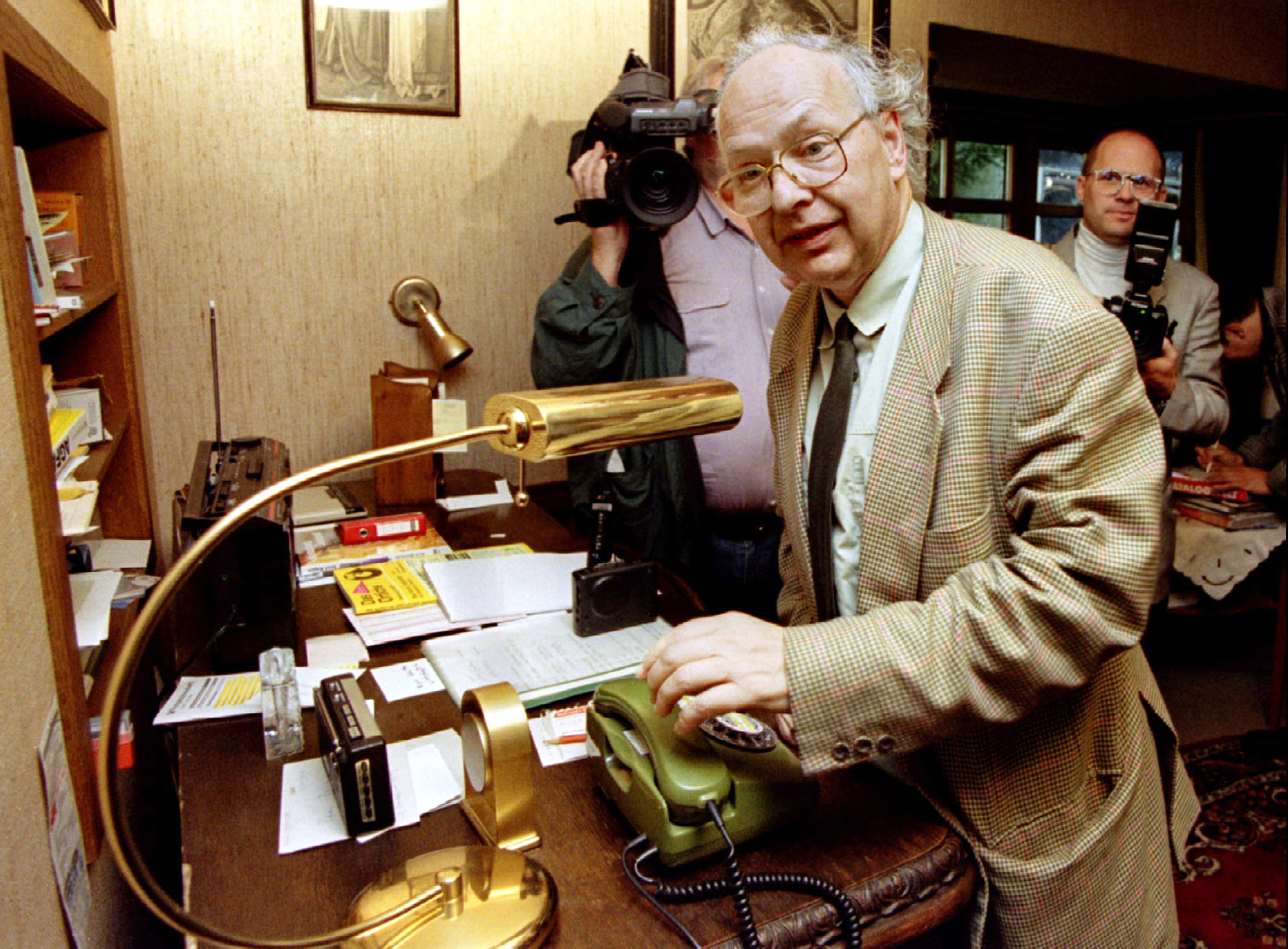Why was Reinhard Selten Awarded the Nobel Prize for Economics in 1994?
Reinhard Selten: The Nobel Laureate Who Revolutionized Game Theory
In 1994, the Nobel Prize in Economics was awarded to the distinguished German economist Reinhard Selten. His groundbreaking work in game theory and bounded rationality earned him this prestigious recognition. Reinhard Selten’s contributions to the field revolutionized the understanding of strategic decision-making, influencing economics and various other disciplines.

1. Path-Breaking Contributions to Game Theory
Reinhard Selten’s most significant contributions were in the field of game theory, where he pioneered the concept of subgame perfect equilibrium. In 1965, Selten published a seminal paper introducing this new solution concept, which extended the concept of Nash equilibrium to dynamic games. Unlike the Nash equilibrium, which focuses on simultaneous decision-making, subgame perfect equilibrium takes into account sequential moves and their consequences, offering more refined predictions of strategic interactions.
Reinhard Selten innovative work provided economists with a robust tool to analyze complex, real-world scenarios where decision-makers interact strategically over time. His insights opened up new avenues for studying strategic behavior in economic settings, such as pricing strategies, bargaining processes, and policy implementation.
2. Advancing Bounded Rationality Theory
Another influential aspect of Selten’s research was his exploration of bounded rationality. Together with psychologists Daniel Kahneman and Amos Tversky, Selten played a crucial role in integrating the concept of limited cognitive abilities into economic models. Bounded rationality posits that individuals may not always make fully rational decisions due to cognitive constraints, information limitations, and the complexity of certain situations.
By incorporating bounded rationality into economic analysis, Selten enhanced the understanding of how individuals make decisions in real-world settings. This interdisciplinary approach paved the way for a more realistic depiction of human behavior in economic models and expanded the scope of economic research beyond traditional assumptions of perfect rationality.
3. Impact on Economic Theory
Reinhard Selten’s work profoundly impacted economic theory, enriching the field with powerful tools and insights. His development of subgame perfect equilibrium allowed economists to analyze dynamic strategic interactions in industries, corporate decision-making, and negotiations. This, in turn, led to a more nuanced understanding of how decisions unfold over time and their consequences on market outcomes.
Furthermore, his work on bounded rationality introduced behavioral elements into economic models, providing a more accurate reflection of human decision-making. This contribution significantly influenced behavioral economics, a field that explores how psychological factors shape economic decisions.
4. Nobel Prize Recognition
The Nobel Prize in Economics, formally known as the Sveriges Riksbank Prize in Economic Sciences in Memory of Alfred Nobel, is awarded to individuals who have made substantial contributions to the field of economics. In 1994, the Royal Swedish Academy of Sciences recognized Reinhard Selten’s exceptional contributions to economic theory, particularly his groundbreaking work in game theory and bounded rationality.
The Academy highlighted Selten’s role in advancing the understanding of strategic behavior and decision-making processes under uncertainty. By introducing the concept of subgame perfect equilibrium, Selten provided economists with a more powerful analytical tool to study dynamic interactions in various economic and social contexts.
5. Legacy and Influence
Reinhard Selten Nobel Prize win cemented his position as one of the most influential economists of his time. His research continues to be highly relevant, inspiring current and future generations of economists. Selten’s work on game theory and bounded rationality has left an indelible mark on economic thought, influencing both theoretical research and empirical studies.
Reinhard Selten’s groundbreaking contributions to game theory and bounded rationality secured his position as a Nobel laureate in economics in 1994. His development of subgame perfect equilibrium and integration of bounded rationality into economic models revolutionized the understanding of strategic interactions and decision-making processes. Selten’s work significantly impacted economic theory, influencing research in game theory, behavioral economics, and related fields. His legacy continues to shape economic thought and inspires scholars worldwide to explore the complexities of human decision-making in dynamic settings.




